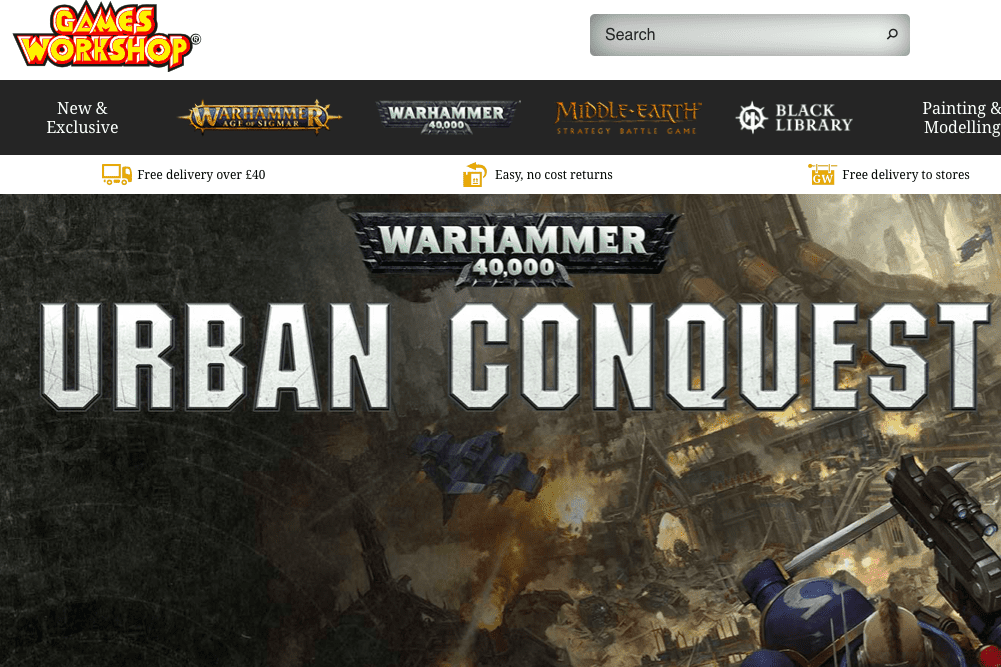Games Workshop has hailed its latest figures as the best set of results in its history so far – despite the Covid-19 lockdown that brought its business entirely to a halt for six weeks towards the end of the year.
The Warhammer game manufacturer and retailer today reported revenue of £269.7m in the year to May 31 . That’s 5% up on £256.6m last time. In-store retail sales fell by 11% during the year as a result of Covid-19 lockdowns across its markets, but online sales grew by 9% and trade sales rose by 15%. Pre-tax profits of £89.4m were also 10% ahead of last year’s £81.3m.
Kevin Rountree, chief executive of Games Workshop, said: “An amazing set of results – the best year in Games Workshop’s history, so far. You can once again see from these results that our business and the Warhammer hobby are in good shape. We look forward to the year ahead and will face any challenges head on and learn from our mistakes. We thank our staff and customers and other stakeholders for their continued support during these uncertain times.”
The retailer said that an “incredible team performance” meant that it only lost about six weeks of sales and profit as a result of Covid-19. It closed its global business on March 24 and some staff still continue to work from home. It claimed furlough relief and government support that it is now repaying where possible, and put in place borrowing facilities that it has not needed to draw on. “We had a healthy balance sheet at the end of February and we have a healthy balance sheet at the end of May,” said Rountree.
Games Workshop sells fantasy miniatures around its Warhammer games and during the year has also expanded into selling Warhammer merchandise.
Multichannel sales strategy
The retailer sells from 531 owned stores in 23 countries, which together contributed 29% of the year’s sales, but are also where Games Workshop recruits most of its new customers. Its stores do not offer the full-range but focus on the latest releases and the relevant extended range. Most (411) of its shops are small and staffed by one person, while 120 are larger. During the year it opened 23 new stores. Its own direct web sales, run from its Nottingham headquarters, account for 19% of total sales. All of its shops also support in-store ordering so customers can buy from the full range while they are in a shop.
More than half (52%) of the retailer’s sales come via third-party retailers selling both online and through stores. In 2020 these grew to 4,900 from 4,700 the previous year.
Looking ahead, the retailer now plans to focus on expanding into China and North America, although it has put its own store opening programme on hold in the short term.
Engagement and licensing
Games Workshop talks to its customers via its stores and online via its Warhammer Community site and social media. It is currently working with a production company to develop a story from its Eisenhorn novel series for TV, it has struck a deal with Marvel to develop Warhammer comics, a deal with Bandai for collectibles now sold through channels including gashapon machines in Japan.
Operations & logistics
The retailer initially distributes products made in its Nottingham factory from its warehouse in the city, and supplies two hubs in Memphis, Tennessee and in Sydney, Australia. Together those sites supply independent retailers, its own stores and online orders. The company is currently expanding both its American and UK warehouses. Games Workshop says it is now embracing off the shelf and third-party IT solutions, and is three years into a plan to remove old technology.
Games Workshop is a Top350 retailer in RXUK Top500 research.









